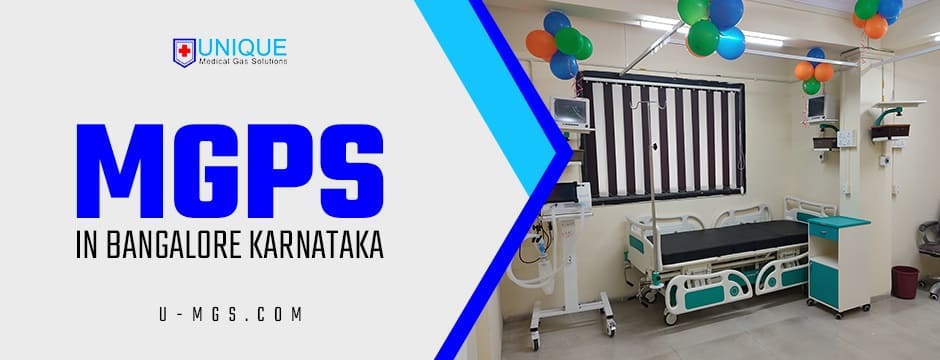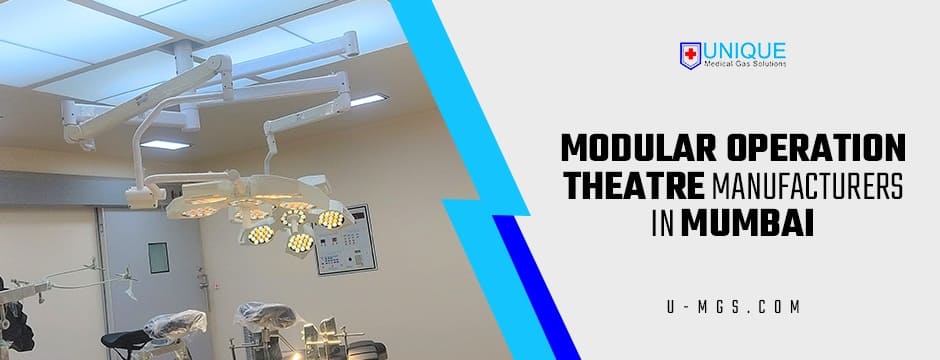In rapidly developing medical hubs like Bangalore, Karnataka, MGPS plays a pivotal role in maintaining hospital functionality, patient safety, and adherence to medical standards. However, as the healthcare infrastructure expands in Bangalore to meet increasing demands, various challenges have surfaced regarding the installation, maintenance, and regulatory compliance of MGPS systems.
From inadequate planning and substandard components to the difficulty of meeting NABH standards for modular Operation Theatres (OTs), hospitals and healthcare contractors often face roadblocks that could compromise system efficiency and patient care. The city’s dynamic infrastructure environment and strict regulatory framework only add to these complexities. In this blog, we’ll explore the most common MGPS in Bangalore Karnataka, related challenges faced by hospitals and medical contractors and offer practical strategies to overcome them.

Inadequate Initial Planning and Design
One of the most common issues in MGPS implementation is the lack of thorough planning during the design phase. Hospitals, especially smaller or newly built ones, may underestimate the scale or complexity of MGPS requirements. Incorrect pipe sizing, poor outlet placements, and future expansion needs often go unaccounted for.
Solution:
Engage experienced MGPS consultants early in the project. This approach ensures system scalability, patient coverage, and optimal gas delivery pressure throughout the facility.
Non-Compliance with NABH Standards for Modular OTs
NABH follows strict requirements for the installation of MGPS in OTs. These include precise pressure control, segregation of gas types, proper terminal outlet fittings, and robust alarm systems.
Solution:
Hire NABH-aware MGPS in Bangalore Karnataka, installation teams who are updated with the latest accreditation standards. Utilise certified products and ensure proper documentation and validation of each MGPS segment within modular OTs.
Substandard Equipment and Materials
Cost-cutting practices often result in the use of non-medical grade pipes, valves, or control panels. Such components degrade faster, leak, or deliver impure gas, thereby endangering patients and violating safety norms.
Solution:
Always source materials from certified vendors. It’s a long-term investment in quality and patient safety.
Skilled Manpower Shortage
While Bangalore has a thriving healthcare infrastructure, there’s a noticeable shortage of trained MGPS professionals for both installation and maintenance. This results in poor workmanship and system inefficiencies.
Solution:
Collaborate with agencies that specialise in MGPS system design, commissioning, and maintenance. Organise workshops for in-house teams on MGPS handling, especially for critical systems like oxygen manifolds and vacuum pumps.
Maintenance Neglect and Downtime Risks
Many hospitals operate under the “install and forget” mindset when it comes to MGPS. Without periodic maintenance, pressure regulators may malfunction, alarms may fail, or gas quality may deteriorate due to internal pipe corrosion.
Solution:
Establish a routine preventive maintenance plan with modular operation theatre manufacturers in Mumbai. Schedule pipeline purging, leak testing, and alarm calibration. Use IoT-enabled monitoring systems for real-time alerting and performance tracking of critical gas sources.
Difficulty in Expanding Existing MGPS Infrastructure
As Bangalore hospitals expand their facilities, adding new wings or ICU beds, they often face issues in integrating these additions with the existing MGPS. Incompatible systems or outdated designs hinder seamless extension.
Solution:
Design MGPS with modularity in mind from the start. Engage the original MGPS vendor or a trusted expert to integrate and test any extensions or upgrades.
Coordination Gaps Between Stakeholders
MGPS installation requires seamless coordination between civil, electrical, HVAC, and biomedical teams. A lack of synergy often leads to issues like blocked pipe paths, incorrect outlet positions, or electrical interference with alarm panels.
Solution:
Form a cross-functional project management team during hospital construction. Implement project tracking tools like Gantt charts or BIM software to ensure synchronised execution and timely reviews.
Inadequate Alarm and Emergency Shut-Off Systems
In many older installations, these alarms are either not installed correctly or not functioning due to neglect.
Solution:
Use advanced area and master alarm panels that comply with HTM or NFPA standards. Ensure the panels are installed at critical points like nurses’ stations and operation theatre control rooms. Regularly test alarm functionality during safety drills.
Poor Documentation and Traceability
Documentation is often overlooked, yet it is crucial for auditing, maintenance, and legal compliance. Many hospitals struggle to locate installation layouts, pressure test certificates, or compliance reports when needed.
Solution:
Maintain a comprehensive MGPS documentation file—digitally and physically. This should include layouts, product certifications, commissioning reports, maintenance logs, and NABH compliance records. Digitisation tools or healthcare facility management software can streamline this process.
Budget Constraints and Delayed Upgrades
Especially in small and mid-sized hospitals in Bangalore, budget limitations often delay necessary upgrades, such as switching from manual manifolds to automatic ones or adding alarm redundancy.
Solution:
Look for government funding schemes, CSR-based health grants, or public-private partnerships to finance essential MGPS upgrades. Prioritize upgrades based on patient risk areas like ICUs, NICUs, and OTs.

Final Words
In a technologically advanced and health-conscious city like Bangalore, ensuring robust and compliant MGPS systems is non-negotiable. With increasing NABH accreditation demands and rising patient loads, hospitals must proactively address the challenges discussed above, from design and materials to skilled manpower and regular audits.
Partnering with a trusted MGPS in Bangalore Karnataka, solutions, and trust, Unique Medical Gas Solutions can significantly simplify the process. With extensive experience in handling MGPS systems for major hospitals across Karnataka, we offer tailored solutions that ensure quality, safety, and compliance. Our expertise in NABH standards, modular OT integration, and smart maintenance solutions makes us the ideal partner for new projects or retrofits.




No comment